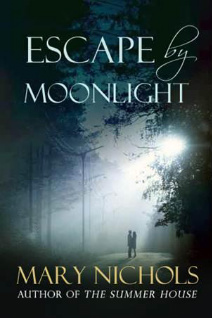- Farewell
- Introduction
- All Mary's Books
- Coming Soon
- More about Mary Nichols
- Links
- Search
- Contact Me
- Acknowledgments
- Blogs
- Most recent blogs
- Archive
- 2014
- 2013
- Building family anecdotes into a novel
- Collective Noun for a group of Romantic Novelists
- Village Brickmaking
- Writing Historical Novels for Mills & Boon
- Plot and Character in Historical novels
- Norfolk roots
- Developing that first Idea
- A Weekend to Remember
- Writing and Selling historical novels
- Using the Second World War as a setting
- What makes a good novel
- Doing the Research
- Spring in the Garden
- Historical novels: getting the setting right
- Writing Novels set against an historical background
- Mothers' Day
- Romantic Novelists' Association Annual Awards
- Shortlisted
- Do you need to be a historian to write historical novels
- 2012
What makes a good Novel
Sat, 01/06/2013 - 11:06 — Mary

What makes a good Novel?
We often cogitate about what makes a good novel and there must be dozens of different answers according to our tastes. But here’s my answer. It would be interesting to learn how others define it.
I think there are four main ingredients to a good novel:
1. A page turning story with a satisfactory ending.
I like to think of the story as a string of beads. Each bead is a chapter/incident, attached to the one behind and the one before by the cord going through the middle of it, so that one leads to the next and at the end we use the clasp to join the end to the beginning to make a rounded whole. The beads do not need to be the same size; they can vary according to their importance in the scheme of things, but they should all have some significance in the way the story moves forward. If they don’t, they shouldn’t be there.
2. Believable characters the reader can identify with.
For me, the characters are the crux of the book. Their actions and reactions are what drives the story. The reader needs to be with them all the way, to identify with their problems, sympathise when they are down, share their joy when they are up, worry with them when fate turns against them, celebrate when things go right, feel their emotions with them. Even the bad characters. I don’t have really wicked characters in my books because I like to explore the reasons why they are bad and perhaps find some redeeming feature. Characters do not need to come to the book fully rounded, but grow and develop as the story progresses, so that at the end they have been subtly, or perhaps not-so-subtly, changed by their experiences.
My characters become so real to me that when I am writing their dialogue, I am listening to them talking and simply writing down what they are saying. Sometimes they say something I haven’t expected, and when I get to the end of the scene I find myself asking, ‘Now why did he/she say that?’ Nothing to do with me at all! If what they have said changes the way the story is going, then I have to make up my mind whether to rewrite the scene and force them back into line or go with the flow, because if they are acting in character (which they surely must be) they know best. I often find myself changing what happens next to accommodate them and sometimes even rewriting the synopsis!
3. The setting: When and where.
This is particularly important when writing historical novels. The setting and the period must be right for the story you want to tell and the problems the characters are going to encounter on their journey along that string of beads. Sometimes the idea for the story comes complete with its setting; it cries out to be a Regency, a Georgian or Victorian. Or it might lend itself best to a more modern setting. If I have a favourite period it is WW2, because I am old enough to remember it, though Regency and Victorian run close. It goes without saying the period must be well researched, even the times you have experienced yourself. The Summer House, The Kirilov Star, The Girl on the Beach and Escape by Moonlight published by Allison and Busby are second world war stories.
4. Good writing.
By good writing, I’m not talking about spelling, grammar and punctuation, that goes without saying. I mean writing that flows, so the reader is not conscious of it. It should have a cadence similar to poetry. The best way to tell if this has been achieved it to read it aloud. If you stumble over it, then it needs rewording. Readers don’t want to be pulled out of the story by a clumsy sentence or a meaning so vague they have to re-read it to make sense of it. To do this they have to abandon the story and that’s not good. I want them to reach the end with a sigh of satisfaction that all the characters’ problems have been resolved with no loose ends. That is story writing at its best.
There is a fifth requirement, which is largely out of the hands of the author, and that is good editing. A good editor will weed out inconsistencies, unintentional changes of name and place, mistakes in chronology, repetition, errors that an author is too close to the story to see. This is particularly important for anyone contemplating self-publishing.
And, of course, there is the cover which is also the domain of the publisher.
At the end of the day, the reader is the judge.
